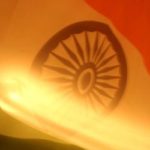India Shining Once More
 What a difference a month makes. All the caviling about Indian dysfunction that erupted in the run-up to the Commonwealth Games is now but a remote memory. In its place is an altogether different image, one of vibrancy, potency and opportunity. Consider the following developments that have occurred in just the last few weeks:
What a difference a month makes. All the caviling about Indian dysfunction that erupted in the run-up to the Commonwealth Games is now but a remote memory. In its place is an altogether different image, one of vibrancy, potency and opportunity. Consider the following developments that have occurred in just the last few weeks:
- India use to be considered a low-wage country offering unfair labor cost advantages that inflicted grievous harm on the U.S. economy. Not too long ago, American politicians railed against the outsourcing of high-paying jobs to India and the influx of Indian workers carrying H-1B visas (read my earlier posts here and here). Even President Obama got in on the act, so much so that the Times of India decried his tendency to use Bangalore as “a catch-all term to hang U.S. economic woes on.” But that view is so yesterday. Far from being a bane, India is now actually a blessing for the U.S. economy. So declares the very same Mr. Obama, who while visiting India last week embraced the country as a jobs-creating engine offering nothing but win-win potential. Speaking to a business conference in Mumbai, he dismissed the “caricature of India as a land of call centers and back offices that cost American jobs.” And at a joint press conference with Prime Minister Manmohan Singh, he banished the “outsourcing bogeyman” as a stereotype that has outlived its usefulness.
- Long gone are the days when India was seen as an economic laggard. In a remarkable sign of changing fortunes, the New York Times “Room for Debate” blog last week convened seven experts for a discussion on what lessons in economic competitiveness the United States could learn from India. Along similar lines, Fareed Zakaria in Time magazine contrasted a dejected America with an India “brimming with hope and faith in the future,” while Thomas L. Friedman in the New York Times proclaimed that “It’s Morning in India.”
- Another signal of India’s growing economic weight and soft power is that Lawrence H. Summers, director of President Obama’s National Economic Council, has begun touting the “Mumbai Consensus.” The intellectual fashion today is the so-called “Beijing Consensus,” named after the model of authoritarian capitalism that some believe will allow China to dominate the 21st century. But this is so old school, according to Summers. Addressing a conference in Mumbai last month, he argued that the hype about the Chinese approach will fade in the coming years as focus turns to the virtues of the Indian model of economic development, one that is “based on the idea of a democratic developmental state, driven not by a mercantilist emphasis on exports, but a people-centered emphasis on growing levels of consumptions and a widening middle class.”
- Last week the International Monetary Fund announced plans to expand the top tier of its governing board to include Brazil, China, India and Russia. Dominique Strauss-Kahn, the IMF’s chief, hailed the move as the “most fundamental governance overhaul in the fund’s 65-year history, and the biggest ever shift of influence in favor of emerging markets and developing countries to recognize their growing role in the global economy.”
 What a difference a month makes. All the caviling about Indian dysfunction that erupted in the run-up to the Commonwealth Games is now but a remote memory. In its place is an altogether different image, one of vibrancy, potency and opportunity. Consider the following developments that have occurred in just the last few weeks:
What a difference a month makes. All the caviling about Indian dysfunction that erupted in the run-up to the Commonwealth Games is now but a remote memory. In its place is an altogether different image, one of vibrancy, potency and opportunity. Consider the following developments that have occurred in just the last few weeks: